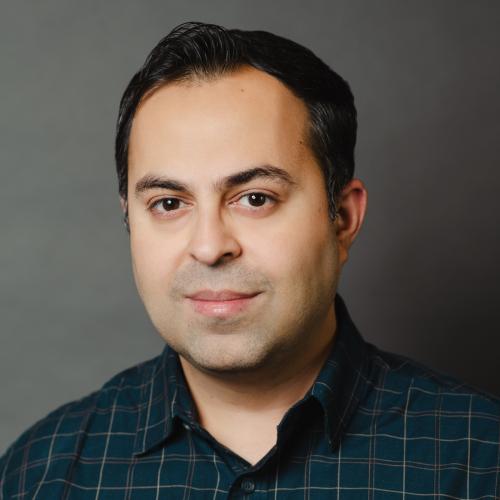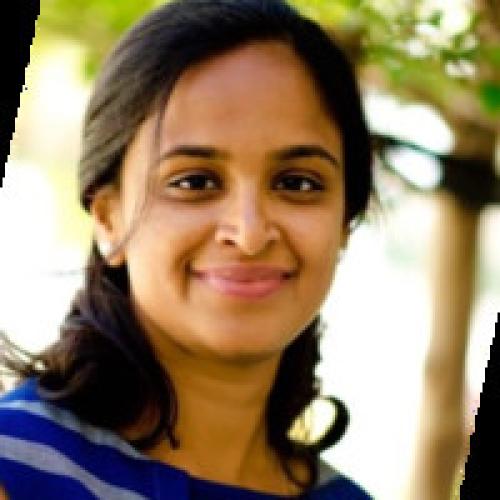Sadasivan (Sadas) Shankar is Research Technology Manager at SLAC National Laboratory, adjunct Professor in Stanford Materials Science and Engineering, and Lecturer in the Stanford Graduate School of Business. He was an Associate in the Department of Physics at Harvard University, and was the first Margaret and Will Hearst Visiting Lecturer in Harvard and the first Distinguished Scientist in Residence at the Harvard Institute of Applied Computational Sciences. He has co-instructed classes related to design of materials, computing, sustainability in materials, and has received Excellence in Teaching award from Harvard University. He is co-instructing a class at Stanford University on Translation for
Innovations. He is a co-founder of and the Chief Scientist at Material Alchemy, a “last mile” translational and independent venture that has been recently founded to accelerate the path from materials discovery to adoption, with environmental sustainability as a key goal. In addition to research on fundamentals of Materials Design, his current research is on new architectures for specialized AI methods is exploring ways of bringing machine intelligence to system-level challenges in inorganic/biochemistry, materials, and physics and new frameworks for computing as information processing inspired by lessons from
nature.
Dr. Shankar’s current research and analysis on Sustainable Computing is helping provide directions for the US Department of Energy’s EES2 scaling initiatives (energy reduction in computing every generation for 1000X reduction in 2 decades) as part of the White House Plan to Revitalize American Manufacturing and Secure Critical Supply Chains in 2022 for investment in research, development, demonstration, and commercial application (RDD&CA) in conventional semiconductors.
In addition, his analysis is helping identify pathways for energy efficient computing. While in the industry, Dr. Shankar and his team have enabled several critical technology decisions in the semiconductor industrial applications of chemistry, materials, processing, packaging, manufacturing, and design rules for over nine generations of Moore’s law including first advanced
process control application in 300 mm wafer technology; introduction of flip chip packaging using electrodeposition, 100% Pb-elimination in microprocessors, design of new materials, devices including nano warp-around devices for the advanced semiconductor technology manufacturing, processing
methods, reactors, etc. Dr. Shankar managed his team members distributed across multiple sites in the US, with collaborations in Europe. The teams won several awards from the Executive Management and technology organizations.
He is a co-inventor in over twenty patent filings covering areas in new
chemical reactor designs, semiconductor processes, bulk and nano materials for the sub 10 nanometer generation of transistors, device structures, and algorithms. He is also a co-author in over hundred publications and presentations in measurements, multi-scale and multi-physics methods spanning from quantum scale to macroscopic scales, in the areas of chemical synthesis, plasma chemistry and processing, non-equilibrium electronic, ionic, and atomic transport, energy efficiency of information processing, and machine learning methods for bridging across scales, and estimating complex materials
properties and in advanced process control.
Dr. Shankar was an invited speaker at the Clean-IT Conference in Germany on Revolutionize Digital Systems and AI (2023), Telluride Quantum Inspired Neuromorphic Computing Workshop (2023) on Limiting Energy Estimates for Classical and Quantum Information Processing, Argonne National
Laboratory Director’s Special Colloquium on the Future of Computing (2022), panelist on Carnegie Science series on Brain and Computing (2020), lecturer in the Winter Course on Computational Brain Research in IIT-M-India (2020), invited participant in the Kavli Institute of Theoretical Physics program
on Cellular Energetics in UCSB (2019), invited speaker to the Camille and Henry Dreyfus Foundation meeting on Machine Learning for problems in Chemistry and Materials Science (2019), a Senior Fellow in UCLA Institute of Pure and Applied Mathematics during the program on Machine Learning and Manybody
Physics (2016), invited to the White House event for starting of the Materials Genome Initiative (2012), Invited speaker in Erwin Schrödinger International Institute for Mathematical Physics-Vienna (2007), Intel’s first Distinguished Lecturer in Caltech (1998) and MIT (1999). He has also given several
colloquia and lectures in universities all over the world and his research was also featured in the publications Science (2012), TED (2013), Nature Machine Intelligence (2022), Nature Physics (2022).





































































































